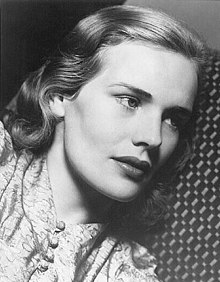
Britney Spears is one of the most successful pop stars of her generation. But unlike her contemporaries Christina Aguilera and Jessica Simpson, Spears has been locked in a bizarre conservatorship for the last 13 years. Fans around the world have rallied behind a trending hashtag, #freebritney, in an effort to get her conservatorship dissolved, or at the very least, her father Jamie Spears, removed from the power position he holds in it. There’s plenty of places to read about the #freebritney movement; here are some that can give you the basics: The New York Times and Rolling Stone.
While there’s a lot of well-deserved focus on Spears lately, you may not realize that her story isn’t exactly new in the world of the rich and famous. Our collective society and legal system has been locking female celebrities in both literal and legal prisons for years, sometimes gleefully (see Lindsay Lohan, Britney Spears, Amanda Bynes.) You can see evidence of this pattern as far back as the 1930s, specifically in a young starlet named Frances Farmer.
You’ve probably never heard of Frances Farmer. That is, unless you saw the 1982 film, Frances, starring Jessica Lange in the title role. Or got curious (like I did in the 90s) about why Nirvana named a song, Frances Farmer will Have her Revenge on Seattle on their album In Utero. The song features one of the more heart-wrenching chants of the depressed, “I miss the comfort in being sad.”
Frances Farmer was a young actress from Seattle who appeared in her first Hollywood feature film in 1936, after becoming a contract player with Paramount Pictures. She starred in films and Broadway productions until 1942, when reports of her erratic behavior and public drunkenness started to appear in gossip columns. She was put under a conservatorship by her mother in 1943, diagnosed as a paranoid schizophrenic, and involuntarily committed to psychiatric institutions, where she remained until 1950. She made a comeback of sorts following the release from her conservatorship in 1953, appearing in small television roles and theater. She died in 1970 at the age of 56 of esophageal cancer.
Several books have been written about Farmer, mostly focusing on her time in psychiatric institutions. They detail the horrors of how the mentally ill were “treated” during that time, including her allegedly being lobotomized, given insulin shock therapy, electric shock therapy, and raped by male doctors and orderlies. Some of the details in these books and accounts have been discredited; leading to unanswered questions about what Farmer endured while she was institutionalized.
What is known, is that Farmer was a strong, outspoken woman. She also appears to have had substance abuse problems and legitimate issues with some form of mental illness. She was arrested several times at the height of her career for what appear to be alcohol-related disturbances. She also reportedly fought for years with Paramount Pictures about the roles she was given and her portrayal in the press. So much so, that she was suspended from her contract in 1942 for refusing to play a role she didn’t believe in. This suspension and eventual dissolution of her contract quickly led to her conservatorship and decade-long psychiatric commitment.
Farmer’s relationship with her mother has been reported as a great source of trauma for the actress. Among other disturbing stories about her mother (and prior to her conservatorship), Farmer claimed that after going to Mexico to shoot a movie at the height of her career, she came home to strangers living in her lavish Santa Monica home. Farmer said that her mother had cleared her belongings out, and rented the home without her permission, forcing her to live in a nearby hotel.
When her mother took guardianship over her in 1943, she forced her to move back to Seattle, which lead to her eventual commitment. Although she was deemed “cured” by a psychiatric hospital in 1944, she was in and out of hospitals until the conservatorship ended in 1953. After it ended, Farmer remained estranged from her mother for the rest of her life.
Farmer was clearly troubled and most likely mentally unstable in some way. She was arrested many times throughout her life, usually with alcohol being blamed for her legal issues. Farmer was indeed from a different era too – where the mentally ill, and specifically mentally ill women, didn’t have a voice. Having a powerful studio and our legal system turn against you is a scary thought today, let alone 80 years ago. We know from the #metoo movement that the consequences of messing with the giant, money-making fame machine in Hollywood can devastate careers and livelihoods permanently (see Rose Mcgowan, Mira Sorvino).
We might look back at Farmer’s experience and think “that could never happen today,” but I argue that it appears to be happening before our eyes with Britney Spears. Spears’ story might be wrapped in a prettier package – she lives in a beach side mansion in Malibu, after all. She was also free to perform in the most popular Las Vegas residency of all time just a few years ago.
But she is also reportedly not allowed to have a cell phone, not allowed to drive a car, is accompanied by security 24/7, and can’t shop at liquor stores. Gossip columns say her father actually “grounded” her for three weeks last summer because she went on an unsupervised beach walk with a friend during the pandemic. This is a 39-year-old woman we are talking about. With all of her notoriety, money, and success, it’s unfathomable that she’s possibly been living this way for the past 13 years.
Will Spears’ outcome be different than Farmer’s sad end? Only time will tell. But if the #freebritney movement has anything to do with it, Spears will hopefully be allowed to live her life on her terms, without intervention, very soon.
